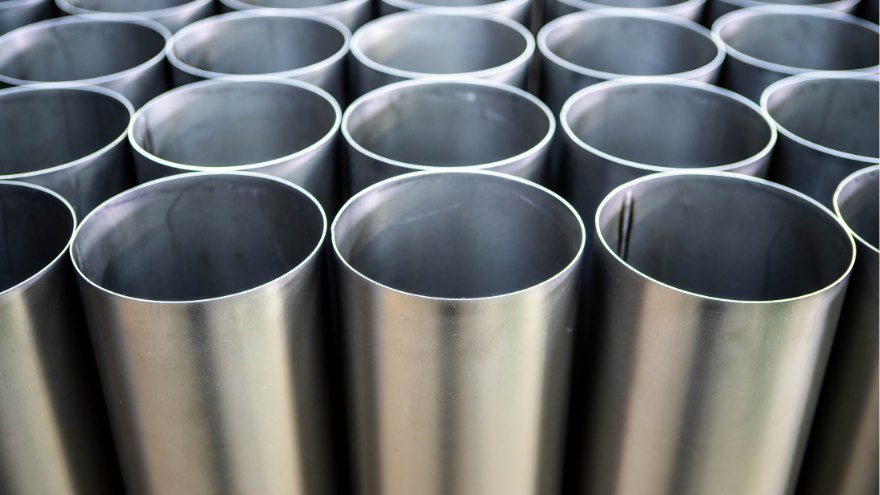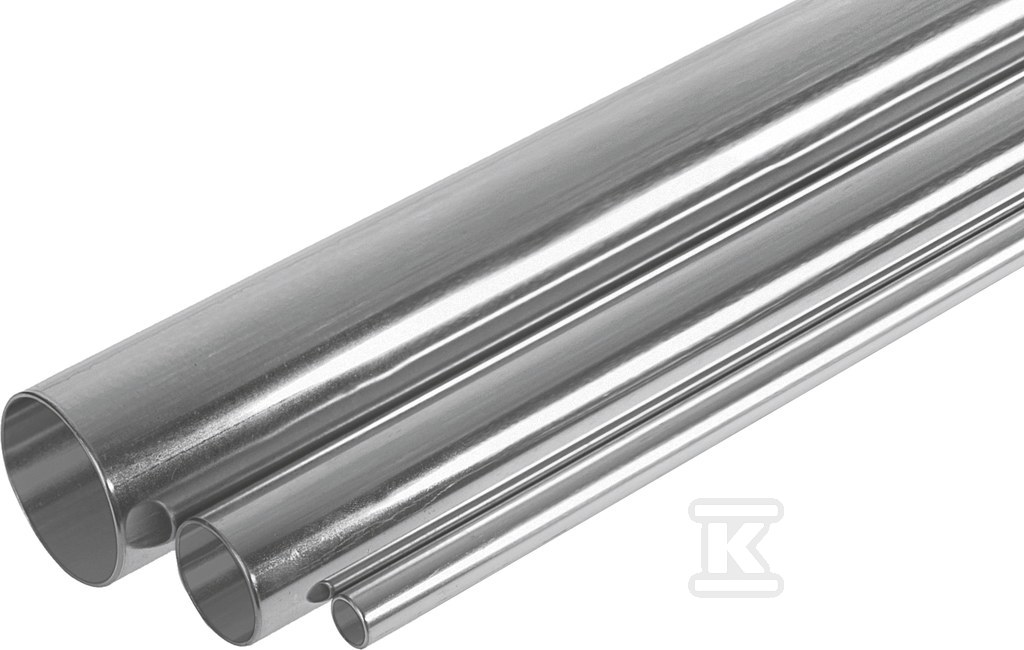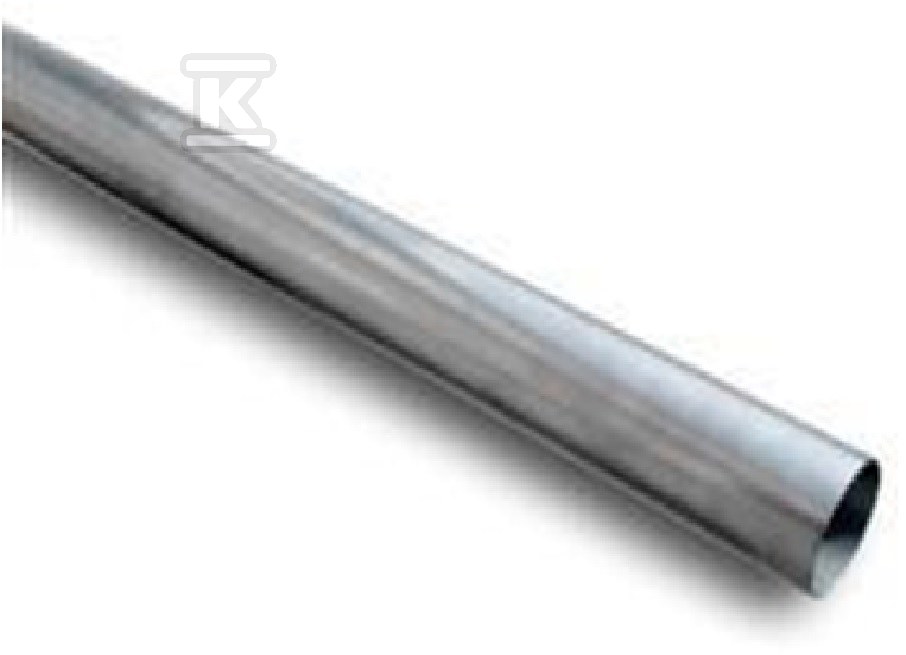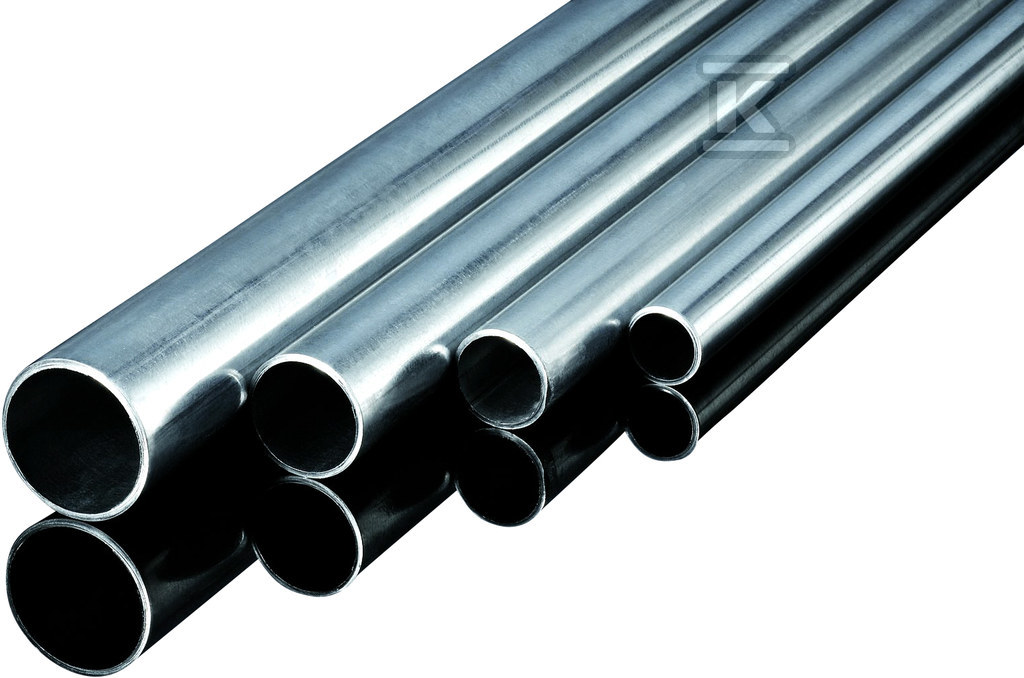Pipes in a hydraulic system must be characterized by high strength and resistance to damage. The most frequently chosen pipes are stainless steel or carbon steel. Which type will work best and in what situations?

Check out the steel pipes at the Onninen wholesaler
When are stainless steel pipes a better choice?
The choice of the optimal material from which the pipes for the hydraulic system will be made depends on many factors, such as the costs of the installation, durability, or the environment in which they are to be installed. To better understand the essence, it is worth getting to know the properties of individual solutions.
Stainless steel is highly resistant to corrosion, which is why it is used in installations exposed not only to moisture, but also to chemicals or chlorides, especially when they occur in high concentrations. Corrosion resistance makes stainless steel pipes durable and long-lasting. In the long run, the installation will not require maintenance, which will also reduce the operating costs of the system. Stainless steel is also aesthetically pleasing, but the initial cost of the installation is higher than in the case of, for example, carbon steel.
 Carbon steel is used as an alternative to stainless steel. Although the cost of the installation is lower, it may require higher maintenance costs in the long run. Carbon steel pipes will work well if the risk of corrosion of the system is not high. A big advantage is that carbon steel is characterized by high resistance to mechanical damage, which is why it is perfect for high-pressure systems. An additional advantage is the high resistance of carbon steel to high temperatures. Among the disadvantages of using carbon steel is its lower corrosion resistance, which is why it cannot be used in every installation.
Carbon steel is used as an alternative to stainless steel. Although the cost of the installation is lower, it may require higher maintenance costs in the long run. Carbon steel pipes will work well if the risk of corrosion of the system is not high. A big advantage is that carbon steel is characterized by high resistance to mechanical damage, which is why it is perfect for high-pressure systems. An additional advantage is the high resistance of carbon steel to high temperatures. Among the disadvantages of using carbon steel is its lower corrosion resistance, which is why it cannot be used in every installation.
The choice of the right material from which the system will be made should be preceded by a thorough analysis of the needs. Stainless steel will work much better if the main selection criterion is strength and resistance to chemicals causing corrosion. On the other hand, carbon steel is a good solution when the risk of corrosion is lower, but the overall costs of the installation are important.
What are the characteristics of carbon steel pipes?
Carbon steel pipes are used in many industries, apart from hydraulics, they are also perfect for the energy, construction and petrochemical industries. Carbon steel is an alloy of iron and carbon, and the amount of the second factor depends on the variant and type of the specific material variant.
Among the most important advantages of carbon steel pipes is mechanical strength. The products are characterized by high stiffness and hardness. As a result, carbon steel pipes are less plastic, and therefore their formability is lower than variants made of other materials.
 The choice of carbon steel pipes is a good solution in installations where resistance to high temperatures is required, which is why they are more often chosen as elements of steam systems, but also in heating systems and boiler rooms.
The choice of carbon steel pipes is a good solution in installations where resistance to high temperatures is required, which is why they are more often chosen as elements of steam systems, but also in heating systems and boiler rooms.
Despite the undoubted advantages, this pipe variant also has disadvantages. Lower cost of purchase and implementation of the system and ease of pipe production, but at the same time higher susceptibility to corrosion than in the case of stainless steel, when contact with factors, e.g. chemicals occurs. If steel pipes are to be used in systems where there is a risk of corrosion, they will need additional protection. In such cases, it is best to choose galvanized pipes, i.e. those with a special coating on their surface.
Carbon pipes can be processed, they are a weldable material. It should be noted that steel pipe with a higher carbon content may crack during processing. The material can also be cut and bent.
Where are stainless steel pipes better and where carbon steel?
The choice of material from which the system will be made should be made after a detailed analysis of the needs and environmental conditions in which the steel installations are to be installed.
 Pressed stainless steel pipes are a solution used in the food, pharmaceutical or chemical industries, where system elements are constantly exposed to substances with an acidic pH, highly chlorinated or in the case of seawater. Such an environment can very quickly lead to corrosion, and thus damage to the system. Due to its properties, stainless steel is also used in the construction of water and sewage systems.
Pressed stainless steel pipes are a solution used in the food, pharmaceutical or chemical industries, where system elements are constantly exposed to substances with an acidic pH, highly chlorinated or in the case of seawater. Such an environment can very quickly lead to corrosion, and thus damage to the system. Due to its properties, stainless steel is also used in the construction of water and sewage systems.
The application of carbon steel is slightly different, because pressed carbon steel pipes are perfect for oil and gas pipelines, where the main factor in the choice is not protection against corrosion, but a high degree of resistance to high pressure in the system. It works best in installations such as heating or industrial systems. Pressed steel systems are resistant, highly durable installations.
The Difference in Corrosion Resistance: Stainless Steel vs. Carbon Steel
Corrosion resistance is one of the key factors that distinguish stainless steel from carbon steel. When designing and implementing different installation options, it should be remembered that stainless steel is characterized by greater durability and resistance. If the cost of the system plays a large role in the selection of material, and therefore carbon steel is chosen, then it may be necessary to properly protect it from corrosion in a difficult environment.